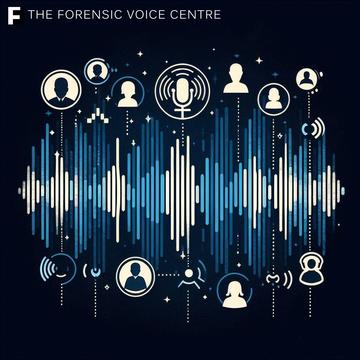A phonetic investigation of speaker attribution and its implications for legal contexts
Applications are invited for an Open-Oxford-Cambridge AHRC DTP-funded Collaborative Doctoral Award at University of Cambridge, in partnership with the Forensic Voice Centre (FVC).
This fully-funded studentship is available from October 2025. Further details about the value of an
Open-Oxford-Cambridge AHRC DTP award are available on the DTP’s studentships page.
Closing date: 3 December 2024

Project overview
In transcribing an evidential recording of an interaction involving two or more speakers, speaker attribution is the process of assigning each utterance in the transcript to a speaker. Evidential speech recordings are frequently poor in quality because of background noise, distance between the
recording device and the speakers, and/or other technical issues. The police may have reason to believe that particular individuals were involved in the interaction, but exactly how many people were present and their identities can be unclear. Speaker attribution is a crucial aspect of the transcription process because by attributing an incriminating utterance to an individual, the transcriber is effectively connecting that person with having committed a crime. Transcription of recordings is typically conducted in-house by police officers or other staff with no linguistic or phonetic training. However, attribution of speakers to utterances is not always straightforward, and transcribers do not achieve 100% accuracy even when recording conditions are good (see Love and Wright 2021). The risk of attributing incriminating words to the wrong person is real and can lead to miscarriages of justice.
Expert forensic phoneticians are sometimes instructed to transcribe evidential recordings, or asked to review the attribution of particular utterances to individuals in a police transcript of an unclear recording. Speaker attribution is significantly under-researched. Among many unanswered questions, it is not well understood how listeners go about making attributions from a phonetic perspective, how this is impacted by differing numbers of speakers in an interaction and by differing levels of recording quality, and which aspects of phonetic knowledge can best contribute to improving attribution accuracy. Questions such as whether exposure to greater amounts of speech from individual speakers can increase identification accuracy and to what extent (automatic) speaker diarisation tools can assist with attribution also need investigating.
This project offers the opportunity to research the phonetic underpinnings of speaker attribution and its implications for legal contexts, including speaker attribution by police staff transcribers, expert transcribers and/or using automatic software. Candidates should propose a project that investigates one or more aspects of speaker attribution experimentally.
Supervision
The student will be jointly supervised by Dr Kirsty McDougall, Associate Professor of Phonetics, Theoretical and Applied Linguistics, University of Cambridge, and Dr Richard Rhodes, Director of Forensic Voice Centre and forensic specialist in speech and audio. Subject to security and vetting procedures, the student will make several day-visits to FVC and undertake a one-month attachment there. Staff training opportunities at FVC will also be made available.
How to apply
We invite applications from candidates from all backgrounds and ethnicities. Applicants should have a background in experimental phonetics and/or forensic speech science, and hold a Masters qualification in linguistics (phonetics), forensic speech science or a closely related area. Experience of recruiting and testing experimental participants and statistical analysis is desirable. Applicants should meet the eligibility criteria for Open-Oxford-Cambridge AHRC studentships.
For an informal discussion about the opportunity and how you might frame your approach to the CDA project, please contact For informal enquiries about the opportunity and how you might frame your approach to the project, please contact Dr Kirsty McDougall (kem37@cam.ac.uk).
You should apply to the Ph.D. in Theoretical and Applied Linguistics at the University of Cambridge using the Applicant Portal by 3 December 2024. Applicants for the OOC-AHRC-DTP studentship should follow the university’s standard admission process explained at
https://www.postgraduate.study.cam.ac.uk/application-process/how-do-i-apply.
When applying for admission, please state that you are applying for the OOC-AHRC-DTP Studentship in the ‘Research Summary’ section of the application form. In your research proposal document, please explain how you would go about investigating the topic proposed above, and also explain your suitability for the project. You should submit a completed copy of the OOC DTP Application Form at the same time. Having submitted your application, please email postgraduatestudies@mmll.cam.ac.uk to notify the office you are applying for this particular OOC- AHRC-DTP Studentship.
Please see the advert on the Cambridge jobs site.


